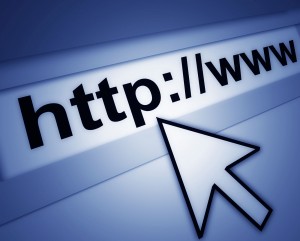
by Peter Roff
The Internet is one of those things that only could have been invented in America. The United States is the only nation on earth with the intellectual traditions, the scientific know how, the “can do spirit” and the capital resources available to envision and execute a project on that scale. Moreover, once it was complete America shared it with the world – and at basically no cost. Friend or foe, everyone has been allowed to enter cyberspace in ways that have changed the world of commerce, the global political environment and the educational experience on a quantum scale.
For all that, you would think that the American government – any American government – would guard it as a national treasure. Unfortunately, the Obama Administration looks to be caving in to pressure from other countries, the European Union and other international governmental combines to open up the control and oversight of the Internet to the entire world.
As the Wall Street Journal has reported, the European Commission – the EU’s executive arm – is pushing for the adoption of what it calls “concrete and actionable steps” to make the essential functions of the Internet a matter of global business. It also wants the United States to establish “a clear timeline” to make the U.S.-based and U.S. chartered Internet Corporation for Assigned Names and Numbers, or ICANN, a fully international body.
Coupled with reports that ICANN wants to move part of its operations to Geneva, “embedding itself in Switzerland,” everyone from the lowliest “net ranger” to members of Congress should be concerned that Barack Obama may be making plans to give away control of the Internet to a self-perpetuating international body made up of representatives of countries who not only don’t understand such core ideas as freedom of thought and freedom of expression but are actively hostile to them.
Freedom built the Internet. Up to now it has been the position of the United States government to defend that idea. The U.S. actively pressures other countries who guard news and information more jealously, who exercise a greater degree of control over news and information content than we do here to play by our rules – which include free and open access and freedom of content. Giving up control of the Internet to any international body would make that a much tougher row to hoe.
It’s perfectly well and good for senior U.S. officials like Secretary of State John Kerry to meet with bloggers from China about the promotion of Internet freedom. But if the president and Secretary of Commerce Penny Pritzker are at the same time working out a scheme to give the Chinese government – which is not exactly a worldwide symbol of free thought and free association — a commanding voice in how the Internet is managed, then what’s the point?
The situation is more complex than former President Jimmy Carter’s long-ago give-away of the Panama Canal. The idea that “We built it, we paid for it, it’s ours,” as Ronald Reagan famously said years ago, is the starting point of the discussion — not the closing argument. The idea behind the Internet is freedom, and no country can guarantee that freedom as well or as enduringly as the United States. Policymakers in Washington need to put a stop to the globalization of its management now, before it’s too late.
. . . . . . . . . . . . . . . . . . . .
Peter Roff is a contributing editor at U.S. News & World Report. Formerly a senior political writer for United Press International, he’s now affiliated with Frontiers of Freedom. Follow him on Twitter @PeterRoff.
